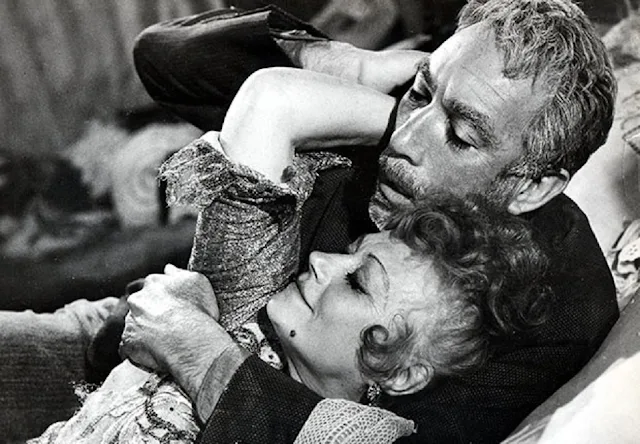 |
| Tom Courtenay in The Loneliness of the Long Distance Runner |
Tony Richardson's The Loneliness of the Long Distance Runner owes some of its prominence in film history to being grouped with other "Angry Young Men" films, such as Richardson's own Look Back in Anger (1959), Jack Clayton's Room at the Top (1959), Karel Reisz's Saturday Night and Sunday Morning (1960), and Lindsay Anderson's This Sporting Life (1963), working-class dramas that gave a boost to such young actors as Richard Burton, Laurence Harvey, Albert Finney, and Richard Harris. Tom Courtenay also got a leg up on his career, largely because he, more than director Richardson, is what holds The Loneliness of the Long Distance Runner together. Richardson's direction lacks focus and tension. For example, he occasionally resorts to brief bursts of sped-up action that almost make me hear "Yackety Sax" playing in the background. The essence of Alan Sillitoe's screenplay is that, as Kris Kristofferson put it, freedom's just another word for nothing left to lose. Courtenay plays Colin Smith, sent to a reformatory, called a Borstal in Britain, for robbery. The oily, autocratic governor of the institution, played by Michael Redgrave, quickly spots Colin's aptitude for running and grooms him for a race he has arranged between teams from the reform school and an upper-class public school. Colin relishes the illusion of freedom that long-distance running gives him, but when the time comes for the race, he realizes that he's just being used by the governor to enhance his image, so he throws the race at the finish line. The bulk of the film deals with Colin's rebellion against the family in which he grew up, his involvement with a young woman, and the small crimes he and a friend commit before he finally gets caught for the theft. But there's not much shape to the film's flashback integration of this background story, and the film falls slack when it should be building to a climax. Still, Courtenay's performance and solid support from Redgrave, from Alec McCowen as a smarmy school counselor full of hack psychology, and from the fine character actress Avis Bunnage as Colin's mother help keep the film alive.
